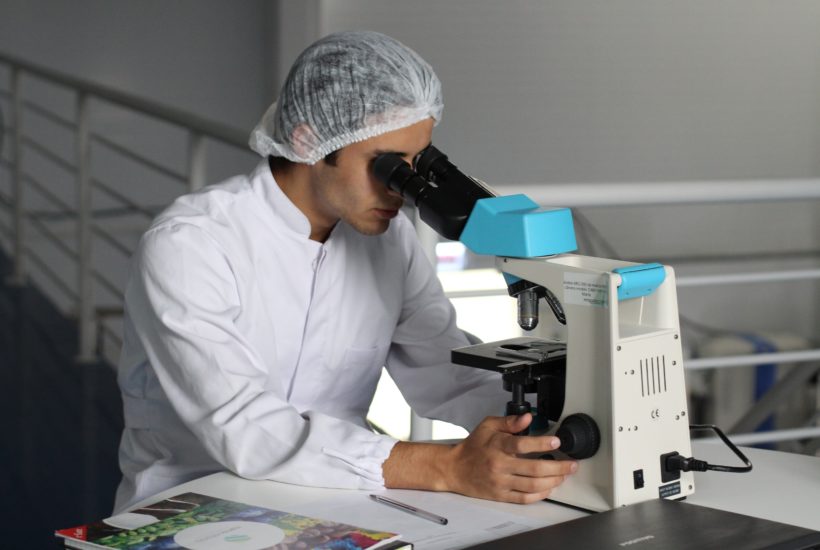Biotech
Technology and Medical Device Companies Increased 34% in Spain since 2012
Seventy percent of healthcare technology and product companies in Spain are micro or small enterprises. But the number has not stopped growing. A study has identified more than 700 companies in the sector, 250 of them responded to questionnaires addressing aspects of R&D&I, employment, certifications or exports. In addition, 75 in-depth interviews were conducted.

Since 2012, the number of companies manufacturing technology and medical devices has grown by 34% in Spain, but they are still mostly small companies: 70% do not belong to any business group, 37% are micro-enterprises and 33% are small companies. However, they are increasingly committed to R+D+i, only 9% of the sector says it does not spend anything on research and development and almost 28% of the total, participates in European R+D+i programs. Many of them are trying to reach other markets, but health imports are still more than double what Spain exports in this field.
Read more on the subject and find the latest business headlines with our companion app Born2Invest.
Seventy percent of healthcare technology and product companies in Spain are micro or small enterprises. But the number has not stopped growing
These are some of the data from the Study on Healthcare Technology Manufacturing in Spain and its Internationalization commissioned by the Spanish Federation of Healthcare Technology Companies (Fenin) to the consultancy firm Agerón Internacional. The analysis offers a snapshot of the situation of manufacturers and exporters in Spain and provides recommendations aimed at different actors involved in the sector in order to boost manufacturing in Spain and the internationalization of their products and technologies.
“As a result of the pandemic, we have experienced first-hand the extreme importance of having a health technology industry”, said the Secretary-General of Fenin, Margarita Alfonsel, at the beginning of the presentation of the report, “with this study we provide effective formulas to strengthen our industry.”
The study has identified more than 700 companies in the sector, 250 of them responded to questionnaires addressing aspects of R&D&I, employment, certifications or exports. In addition, 75 in-depth interviews were conducted. “The sector has evolved a lot in recent years,” explained Jesús Centeno, partner at Agerón Internacional.
The total number of companies has not stopped growing, and although they are still mainly concentrated in Catalonia, where 35% of them are located, and in Madrid, with 21%, “we see that companies are opening production centers in other communities.” Up to 89% of the companies have the CE marking for medical devices and 81% have the ISO quality certificate. Centeno pointed out that 17% of these companies have obtained FDA certification, “which is tremendously complicated,” he said. In addition, one out of every two companies participates in national R&D&I projects, including micro and small companies.
Fenin believes that the sector “could grow exponentially” with the help of public administrations and stable support instruments.
The data have improved compared to those of previous studies. But Jesús Centeno did not want to be “triumphalist”, since he considers that “there is still a lot of work to do”. According to the president of the Manufacturers, Exporters and SMEs Sector of Fenin and coordinator of the study, Luis Adot, from all the knowledge provided by the report conclusions can be drawn on how to boost the industrial fabric of the sector. One of them is that, with the help of public administrations and stable support instruments, “it could grow exponentially”.
“We consider the expansion of financing, support for going abroad and the diversification of markets; the promotion of new formulas for public procurement, the promotion of digitalization and the strengthening of the Spain brand for healthcare technology, among others, to be priorities,” he summarized.
One of the sector’s needs is “support from public administrations to encourage investment in manufacturing in Spain and generate a competitive industrial fabric,” explained Adot. Sixteen percent of the companies that participated in the report plan to open new production centers in Spain. “We need a plan to support the sector through aid, subsidies and tax incentives. We need to encourage manufacturing companies to expand their production and size in order to be more competitive,” said the Fenin representative.
The study includes recommendations not only for public administrations, but also for manufacturers, with ideas for improving internationalization, R&D&I and quality certifications. “It is essential that public administrations get directly involved. We are living a moment of opportunity with the Next Generation Funds and we believe that we have to have a response to the proposals we are making,” concluded Margarita Alfonsel.
__
(Featured image by Lucas Vasques via Unsplash)
DISCLAIMER: This article was written by a third party contributor and does not reflect the opinion of Born2Invest, its management, staff or its associates. Please review our disclaimer for more information.
This article may include forward-looking statements. These forward-looking statements generally are identified by the words “believe,” “project,” “estimate,” “become,” “plan,” “will,” and similar expressions. These forward-looking statements involve known and unknown risks as well as uncertainties, including those discussed in the following cautionary statements and elsewhere in this article and on this site. Although the Company may believe that its expectations are based on reasonable assumptions, the actual results that the Company may achieve may differ materially from any forward-looking statements, which reflect the opinions of the management of the Company only as of the date hereof. Additionally, please make sure to read these important disclosures.
First published in iSanidad, a third-party contributor translated and adapted the article from the original. In case of discrepancy, the original will prevail.
Although we made reasonable efforts to provide accurate translations, some parts may be incorrect. Born2Invest assumes no responsibility for errors, omissions or ambiguities in the translations provided on this website. Any person or entity relying on translated content does so at their own risk. Born2Invest is not responsible for losses caused by such reliance on the accuracy or reliability of translated information. If you wish to report an error or inaccuracy in the translation, we encourage you to contact us.

-

 Business1 week ago
Business1 week agoDow Jones Nears New High as Historic Signals Flash Caution
-

 Crypto1 week ago
Crypto1 week agoBitcoin Surges Toward $110K Amid Trade News and Solana ETF Boost
-

 Fintech2 days ago
Fintech2 days agoRipple and Mercado Bitcoin Expand RWA Tokenization on XRPL
-

 Crypto1 week ago
Crypto1 week agoBitcoin Traders on DEXs Brace for Downturn Despite Price Rally

























